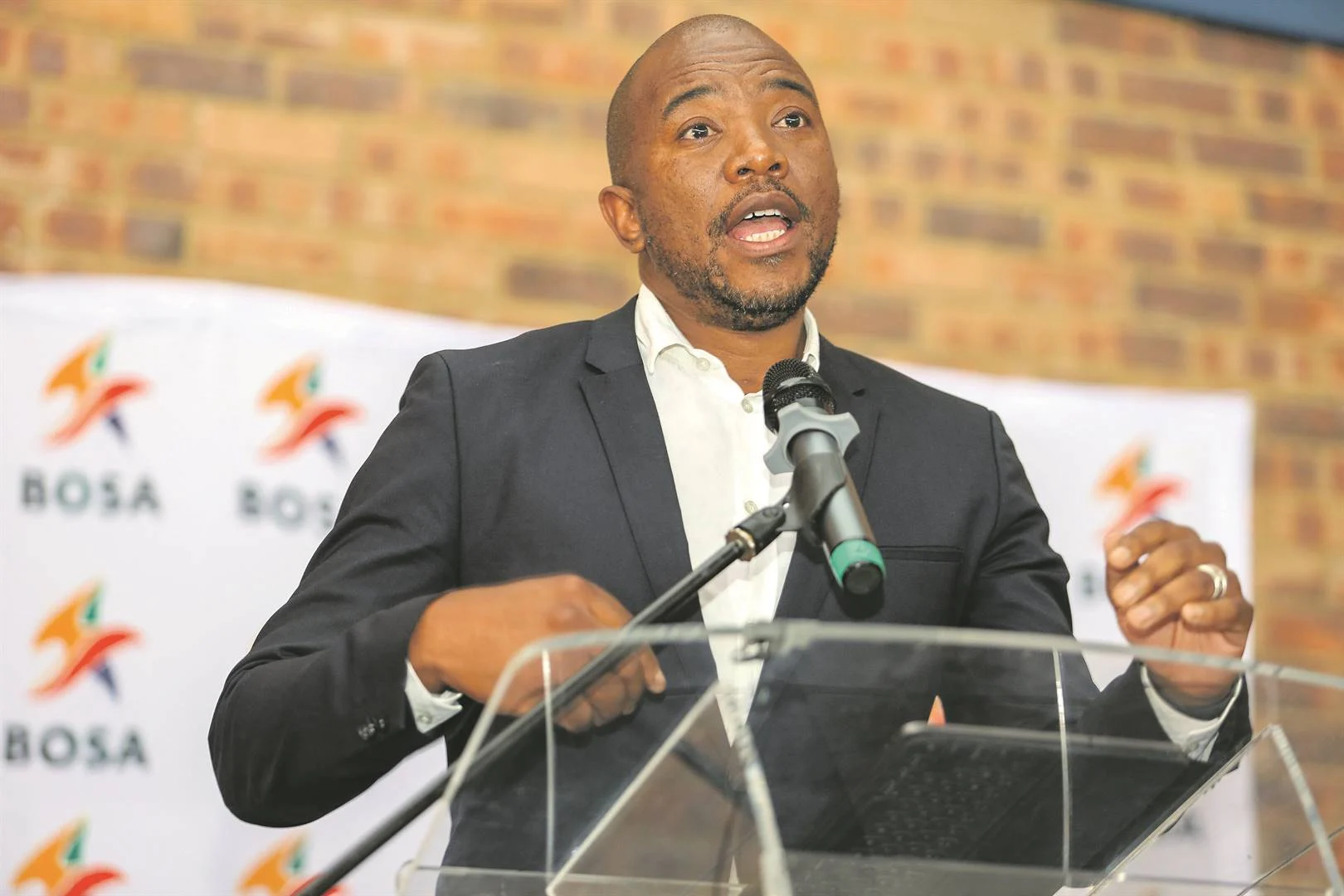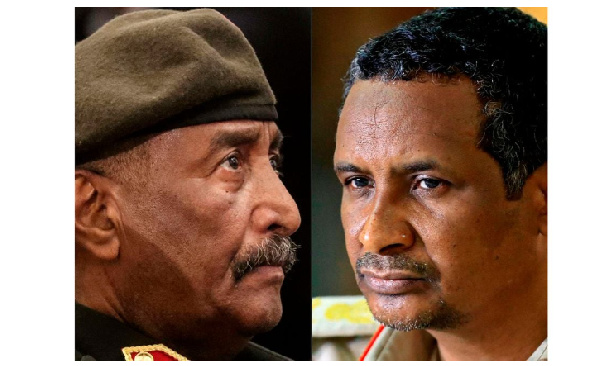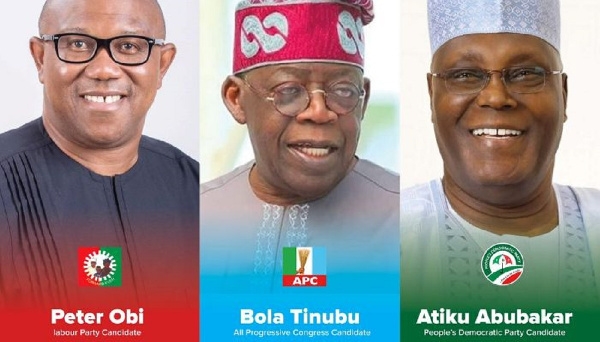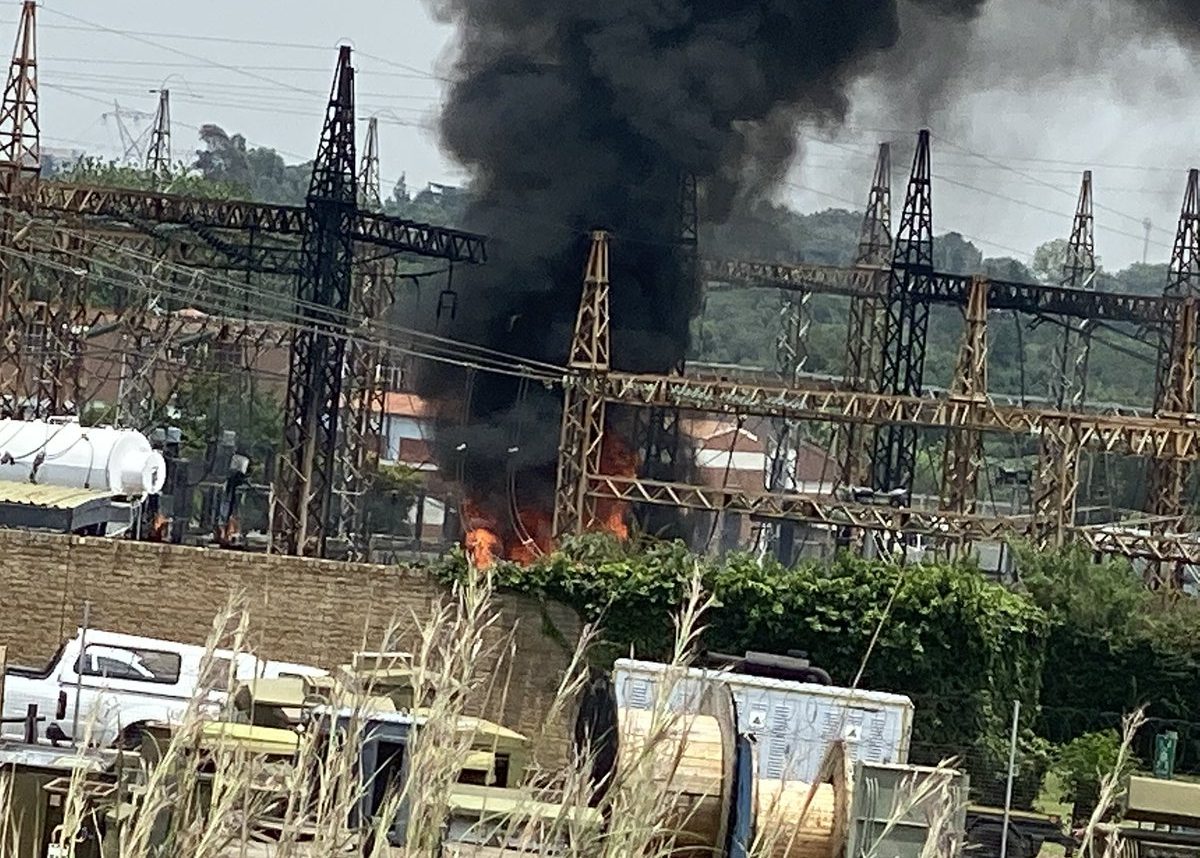How Mmusi Maimane poisoned the ANC to death

Pretoria – The past three decades were supposed to be the best of times. But the last 15 years, with load shedding, among others, have been the worst of times.
Try as we might, we cannot find a more appropriate phrase or meaning for what the African majority, especially, has gone through in the past decade.
When the ANC returned from exile following the unbanning of the liberation movement, it was the best of times. There was euphoria, and self-forgetfulness, for about a decade. Nobody could have imagined the liberation movement would be dead in less than two decades. Yet, the ANC died while it was still in power, like a drunken driver in a fatal accident.
In the past few years, when it died slowly, it was rumoured that Jesus Christ had come back to earth. The joke in urban township circles, especially among the elite, was that the Son of God had not come back to save it, but his Second Coming in South Africa was to bury it.
It was crazy to believe this lie, a myth. But not to accept it as truth would have meant you were crazy, too. Many people are still in denial – not about the arrival of Jesus but the death of the ANC. It is unbelievable. This is the oldest liberation movement in the history of the African continent.
However, a former young leader of the opposition, one Mmusi Maimane from Dobsonville in Soweto, once launched a campaign to awaken the people and the world to this reality. He said, Ayisafani – it is no longer the same.
In fact, he relaunched the same campaign as the #Change19 national tour aimed at mobilising South Africans from all walks of life to dislodge the ANC from political power.
He continues to repeat the message that the ANC has changed, to this day. It has become arrogant and drunk with power. It is no longer the same. It lacks both an intuitive connection with the people and humbleness. Its leaders are so power drunk they toast each other with expensive whisky in front of the hungry and thirsty masses.
Not even attempts to bring back Nelson Mandela or Oliver Tambo would help it. To save itself, the ANC had to die. President Cyril Ramaphosa cannot save it.
When the infectious news spread like a disease, it was in a surreptitious manner, like a thief in the night. But this subliminal message had crept into the subconscious. It became a voice in people’s heads that told them the death of Mandela in 2013 marked the death of the oldest liberation movement on the continent.
At separate times, using different methods and campaigns, the voice of the former young opposition leader urged the people to wake up, to see the ANC for what it was, not what it used to be. He claimed to have been raised on the ANC’s gospel, but had become disillusioned.
If not for this voice, pointing out the emptying of the spirit of selflessness, sacrifice and service of the people, it would have been easy to dismiss the message as a hoax. The people would not have discovered this truth if there was no one from Soweto, a “clever black” who had made it his mission to point out what was considered obvious by the party’s detractors.
It was, and always will be, the duty of the opposition to undermine the integrity of the organisation, and, ultimately, kill it. It seems they have succeeded. The support has dropped to unbelievably low levels. How the mighty have fallen.
Even today, 14 years since 2009, it is much better to ignore it. The safe space to occupy for ANC die-hards, the amadela kufa (fearless of death), is to be in denial. After all, the people had found spiritual peace and happiness when they believed the ANC would rule until Jesus came back.
There was no one who could imagine that there would be a time when the oldest liberation movement, the founding father of African liberation, would succumb to death, not even after the death of Mandela.
After all, the movement had already reached 110 years. It was the first and last of all movements to have reached that ripe age. It had inspired a whole continent.
Thus, the people could ignore the menacing message. No, they could ignore it even if it meant deluding themselves that it was uttered by a rival, a political competitor who envied the dominant position of the ANC. The young man peddling this message was a stooge. What African would believe his message?
Thus, determined to protect and preserve the ANC, a large part of the people chose to stay away from the local government elections in 2014. These were the same people who did not vote for the new ANC president.
Yet, they could not bring themselves to see or accept that the organisation was dying.
Even in their conversations, as they sat sulking in their dilapidated corrugated iron homes, they were determined to promote the ANC they believed in.
What they did not know was that it was impossible without going to the polls. Without the power of the people’s vote and a landslide victory in the national and local elections, the ANC was as good as dead.
But the people were sulking. They were not aware that the ayisafani message had poisoned their minds. Thus, they did not walk to the polling stations. They stayed home or visited the nearest shebeens to mourn and weep. They buried their pain and agony in drink.
Worse, even the largest group of beneficiaries – the black petite bourgeoisie – did very little or nothing to challenge the story of the death of the ANC. It was their duty to fight for it, to defend it.
After all, they had moved into formerly white suburbs, where they shared the same space as their former oppressors. Their children attended private schools and spoke English which disconnected them from the indigenous African majority that was still trapped in poverty, unemployment and inequality. The latter blamed their woes on the ANC.
But the black middle class, as they had become known, would have nothing to do with the ANC. They followed the behaviour and attitude of the poorest of the poor, especially in the metropolitan areas, that stayed away from what they considered corrupt and criminal politics.
Instead, they were content to stay home to watch analysts on television as they sipped their wines and whiskies as early as 11am.
They, too, were determined to withhold their vote from the ANC, these “clever blacks”.
It was not possible to imagine that the working poor and the petite bourgeoisie from the indigenous African community could be united by the desire to kill the ANC.
But it is not difficult to know that the poor and the rich have confirmed and believed the words of the young opposition leader from Soweto, who kept repeating the message that the ANC had changed.
Nay, he had found a sinister and sophisticated way to say the ANC of old was dead. Ayisafani, he repeated.
It remains to be seen if the ANC is really dead. But there was the killing of Andries Tatane. This was followed by the controversy of Nkandla. Soon after, there was the Marikana tragedy. The list grows longer. For some, this marked the death of the ANC. It represented the lack of safety and sanctity of black life.
But the people of the ayisafani message say that the much-vaunted introspection and radical internal change have not happened. Instead, they say the ANC is about connections, and self-serving individuals who are only interested in themselves.
Even ANC leaders themselves now say the ANC ayisafani. They, too, say it must die. Kgalema Motlanthe. Mathews Phosa. Gwede Mantashe. The 101 stalwarts and veterans. The church. Some of the cadres of Umkhonto we Sizwe.
Almost everyone wants the ANC dead.
Only the young man from Soweto can get credit for this crisis. What an incredible loss. The death of the ANC is probably the death of the African Renaissance. Only in 2024 will the people know for sure if the ANC is truly dead. There are many who say it is. But the show is not over until the people fail to show up at the polls again.
No one could have imagined it would take a young man from Soweto and only 10 years to kill and bury the oldest liberation movement. Things are no longer the same. Yona ayisafani!
* Memela is a journalist, writer, cultural critic and civil servant. He writes in his personal capacity.
** The views expressed do not necessarily reflect the views of IOL or Independent Media.
Pretoria News





